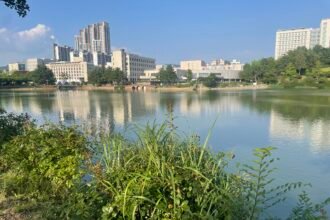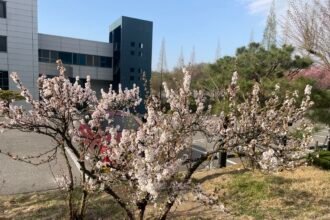A well-crafted Statement of Purpose (SOP) is one of the most essential parts of a graduate school application. It’s not merely a summary of achievements or qualifications—it’s a concise narrative that links personal motivations, academic journey, research interests, and long-term goals in a coherent and compelling way. This guide walks through a structured approach to writing an SOP, along with an original example that aligns with leading graduate school standards such as those at Purdue and MIT.
I. The Problem Statement: Finding Purpose Through Lived Experience
An impactful SOP begins with a genuine motivation rooted in lived experience. Graduate programs are interested in knowing why you chose your field, and what real-world problems or events inspired this decision. Your story should answer this: what problem did you encounter in your life, community, or country that led you to choose this path?
Example:
Growing up in a coastal town increasingly vulnerable to flooding, I witnessed the devastating effects of climate change on low-income households. Frequent storms and saline water intrusion had severe impacts on agriculture and public health in my region. Despite the gravity of these events, there was little data-driven planning or policy to mitigate the damage. During high school, I began exploring environmental science articles and open-source climate modeling tools, eager to understand how science could forecast, and ultimately reduce, the impacts of climate variability. This early exposure formed the foundation for my decision to pursue a Bachelor’s degree in Environmental Engineering, seeking scientific methods to promote resilience in vulnerable communities.
II. Educational Experience and Academic Preparedness
The second part of your SOP should connect your undergraduate education and any relevant post-graduate experience to the problem outlined above. This is your opportunity to showcase your academic background, research work, technical skills, and challenges faced, while establishing your readiness for advanced study.
Example:
I earned my Bachelor of Science in Environmental Engineering from [Your University], where I specialized in hydrology and data modeling. My coursework in Environmental Data Analysis, Geographic Information Systems (GIS), and Fluid Dynamics provided a strong technical foundation. In my third year, I joined a faculty-led project analyzing flood risk mapping in riverine regions using GIS and remote sensing tools. This research culminated in a paper published in the undergraduate journal Earth & Environment Review, and deepened my interest in predictive modeling for disaster risk reduction.
Throughout my undergraduate years, I also led a community-based water quality monitoring project. I developed skills in field sampling, lab analysis, and data interpretation, while learning to communicate findings to non-expert audiences. While I faced initial difficulties in mastering programming tools like R and Python, sustained effort led to significant improvement, culminating in a successful capstone project where I modeled rainfall-runoff relationships using real-time data.
III. Study Area and Research Interest
This section articulates your intended research focus in graduate school. Go beyond stating general interest: identify specific sub-fields, research questions, and even faculty members you wish to work with. Relate your academic direction to the core problem discussed earlier.
Example:
Building on my background, I am particularly interested in the intersection of climate data modeling and community adaptation planning. Within this broad area, my focus lies in applying machine learning techniques to predict flood hazards and assess infrastructure vulnerability in low-elevation developing regions.
This interest aligns closely with the work of Dr. [Professor’s Name] at [University Name], whose research on climate-resilient urban planning integrates hydrological models with socio-economic vulnerability assessments. The opportunity to work in [Lab Name or Research Group], where interdisciplinary research drives innovation, is a key reason I am applying to your program. The department’s robust support for field-based research, including access to the Environmental Remote Sensing Lab and computational modeling clusters, aligns with my academic and research aspirations.
I am also drawn to the university’s commitment to sustainability and its collaborations with governmental and international organizations, which I believe will expand the practical impact of my research.
IV. Postgraduate Vision: Research, Policy, and Global Impact
Your SOP should conclude by describing how your graduate education will enable you to contribute meaningfully to your field and to global issues. Articulate a vision that extends beyond personal ambition—focus on your contribution to science, society, or both.
Example:
My long-term goal is to become a researcher and policy consultant at the intersection of environmental data science and climate policy. I envision contributing to predictive systems that help governments and NGOs in developing countries prepare for climate-induced disasters, particularly in coastal and flood-prone areas. By developing tools that translate complex data into actionable insights, I aim to support evidence-based decision-making in regions that lack access to advanced scientific resources.
Ultimately, I aspire to establish a research center in my home country dedicated to climate risk mitigation, merging local knowledge with global models. I believe graduate training at your institution will equip me not only with the advanced technical knowledge, but also with the collaborative experience and policy-oriented thinking necessary to make a tangible difference.
Final Thoughts: What Makes an SOP Stand Out?
- Authenticity: Your SOP should reflect your personal and academic journey. Avoid clichés and overused expressions.
- Coherence: Each section should logically build on the previous one, creating a narrative arc from past experiences to future goals.
- Specificity: Mention specific faculty, labs, research themes, or institutional values to show why this program is the right fit.
- Balance: Maintain a formal tone, but ensure the writing remains personal and passionate. Avoid verbosity or overly complex language.
Writing an SOP is not just an admission requirement—it’s a self-reflection exercise. Take the time to map your journey and refine your narrative. A strong SOP demonstrates not only your eligibility but also your clarity of purpose and your capacity to contribute meaningfully to your chosen field.






